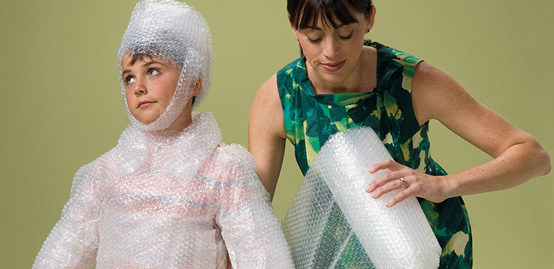
Total control provokes behavioral problems.

Recent studies show that children whose parents over-care for them before the age of two are less able to control their emotions as they have grown up, often leading to problems at school.
Experts in the study looked at the extent to which mothers of young children dominate the gameplay with them, and then studied how their children behaved over the next eight years.
“Excessively caring parents are often well-intentioned, try to support the child and be always there. However, in order to develop emotional and behavioral skills, it is necessary to allow children to experience a range of emotions on their own, to learn to manage them at their discretion. Sometimes parents only need to give their child space to practice, and stay away. It’s only when the task becomes too complex that you send the baby and help solve it,” said study co-author Dr. Nicole Perry of the University of Minnesota.
Perry and her colleagues from the United States and Switzerland studied the upbringing and behavior of 422 children as young as two. They invited the mother and child to the lab and asked them to play with lots of toys for four minutes and then remove them for the next two minutes. The sessions were recorded on video, and the researchers assessed the extent to which the mother was trying to lead the way.
When the children were 5 years old, the scientists followed the children’s reaction to the injustices of this world and their ability to think carefully about the tasks over time. The researchers also asked teachers to assess the condition of children at the age of 5 and at the age of 10 for depression, anxiety and loneliness. We traced their academic performance, behavior in society. At the age of 10, the children themselves were asked how they were treated in school and how they were treated by teachers, what emotional problems they had. It is worth noting that the study involved students of private boarding schools in England and the United States, as well as their peers, receiving education in public schools.
After analyzing all the initial factors, the scientists came to the conclusion that parents who take too much care of their children, children have less control over their own emotions and impulses by the age of five. And later, closer to the age of ten, these children had lower academic performance, emotional problems, negative comments about the school and teachers.
However, the study looked at maternal behaviour only for a limited period of time, but did not take into account adjustments in parenting, physical health or any other factors.
Dieter Volk, a professor of developmental psychology and individual characteristics at the British University of Warwick, said the team did not look at whether mothers had anxiety disorders.
“The problem here is, really, that if a person does not learn self-regulation skills in childhood, he will not be able to control his emotions when he goes to school, university or leaves his parents’ home. In a sense, taking away the possibility of self-becoming in children is a form of abuse on the part of parents, although this process takes place solely for the best of intentions,” says Volk.
Researchers urge parents to be cautious, as it is sometimes too difficult to determine when a child’s level of control is approaching the threshold of excessive. They also add that parents should not feel guilty or condemn others for sometimes incomprehensible behavior. It is only natural that parents take care of their children, participate in their lives and development. Just not everyone knows the measure and have a pedagogical education. Possible assistance of an experienced, mature person in obtaining a quality education will undoubtedly be useful for the next generation.
